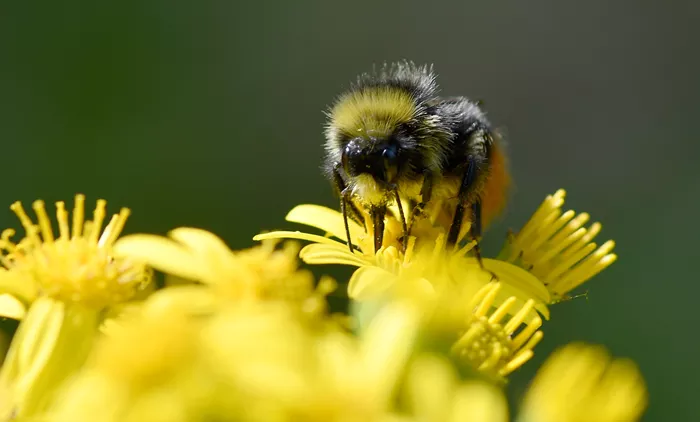Gardeners across the country are being encouraged to plant two specific flowers this season to help outdoor spaces flourish—while also supporting the vital role of pollinators. These beautiful blooms not only enhance your garden’s visual appeal but also provide essential nectar for bees, which are crucial for healthy ecosystems and successful crop production.
Bees play an indispensable role in nature, aiding in the reproduction of flowering plants, fruits, and vegetables. Yet in the UK alone, 35 species of bees are currently under threat of extinction. One of the easiest and most natural ways to support them is by planting flowers they love—especially during peak blooming seasons.
In celebration of World Bee Day (May 20th), gardening experts are urging the public to plant foxgloves and lavender, two bee-favored flowers that are ideal for late spring planting.
🌼 Foxgloves: Tall, Elegant, and Bee-Friendly
Foxgloves (Digitalis purpurea) are renowned for their tall spikes of bell-shaped blooms that attract bees with their deep wells of nectar. These striking biennials are a classic in cottage gardens and are particularly useful for creating vertical interest.
According to gardening advisors from Which?, foxgloves can be sown directly in pre-moistened compost during May. Once the seedlings take root and fill their trays, they should be moved to a sunny, slightly moist spot outdoors.
Though foxgloves only last a couple of seasons, they self-seed naturally, meaning once established, you can enjoy new blooms year after year with minimal effort. However, gardeners should handle them carefully—foxgloves are toxic to humans and pets, so wear gloves and wash hands thoroughly after planting.
🌸 Lavender: Fragrant, Hardy, and Ideal for Beginners
If you’re looking for a lower-maintenance and safer option, lavender is an excellent alternative. This aromatic Mediterranean plant is as tough as it is beautiful, thriving in sunny locations with well-drained soil—even if it’s poor in nutrients.
Lavender blooms from late spring through summer, drawing in bees with its scent and nectar-rich purple spikes. It’s also incredibly versatile: plant it along garden borders, in pots, or among your herbs. And while bees love it, pests typically stay away, making it a useful natural deterrent.
Gardening experts call lavender the “perfect plant for beginners,” requiring little more than sunshine and space to thrive.
🌺 Why These Flowers Matter Now
In a time when bee populations are facing multiple threats—from pesticide use to habitat loss—choosing plants that actively support pollinators is more important than ever. While foxgloves and lavender are two of the best, other nectar-rich flowers to consider include:
- Buddleia (Butterfly Bush): An explosion of color and nectar
- French Marigolds: Hardy, sun-loving, and bee-attracting
- Echinacea (Coneflowers): Long-lasting and easy to grow
- Cosmos: Tall, feathery, and pollinator-friendly
🌻 Avoid Double-Flowered Varieties
Not all flowers are helpful to bees. Double-flowered varieties—such as carnations and some hybrid petunias—may look lush and full, but they often lack nectar and have densely packed petals that make it difficult for bees to access any pollen.
🌸 Gardeners: Your Flower Choices Matter
Your garden has the potential to become a mini sanctuary for bees, and in return, you’ll enjoy a flourishing landscape brimming with color, fragrance, and life. By simply planting foxgloves and lavender this season, you’re not just enhancing your garden—you’re actively participating in the conservation of one of nature’s most essential creatures.
So, grab a trowel, sow your seeds, and let your garden bloom into a haven for pollinators this summer.


